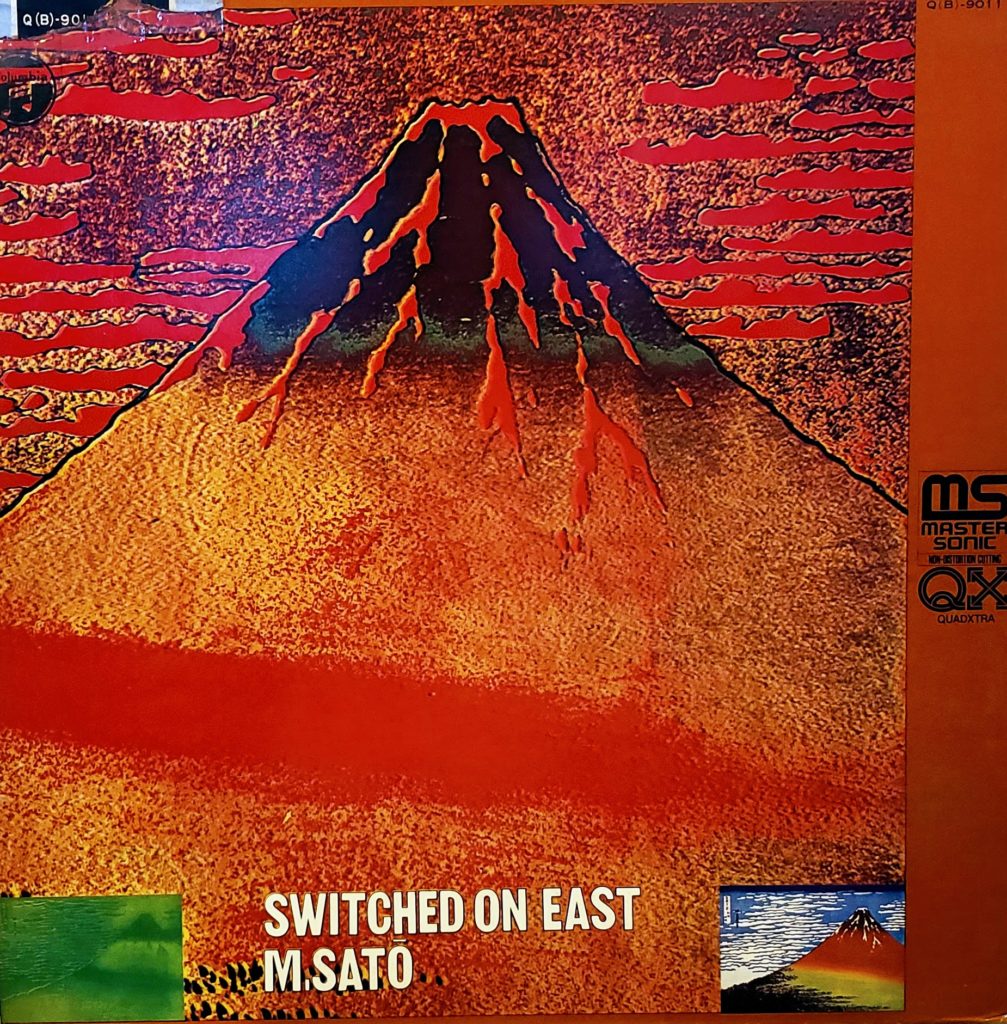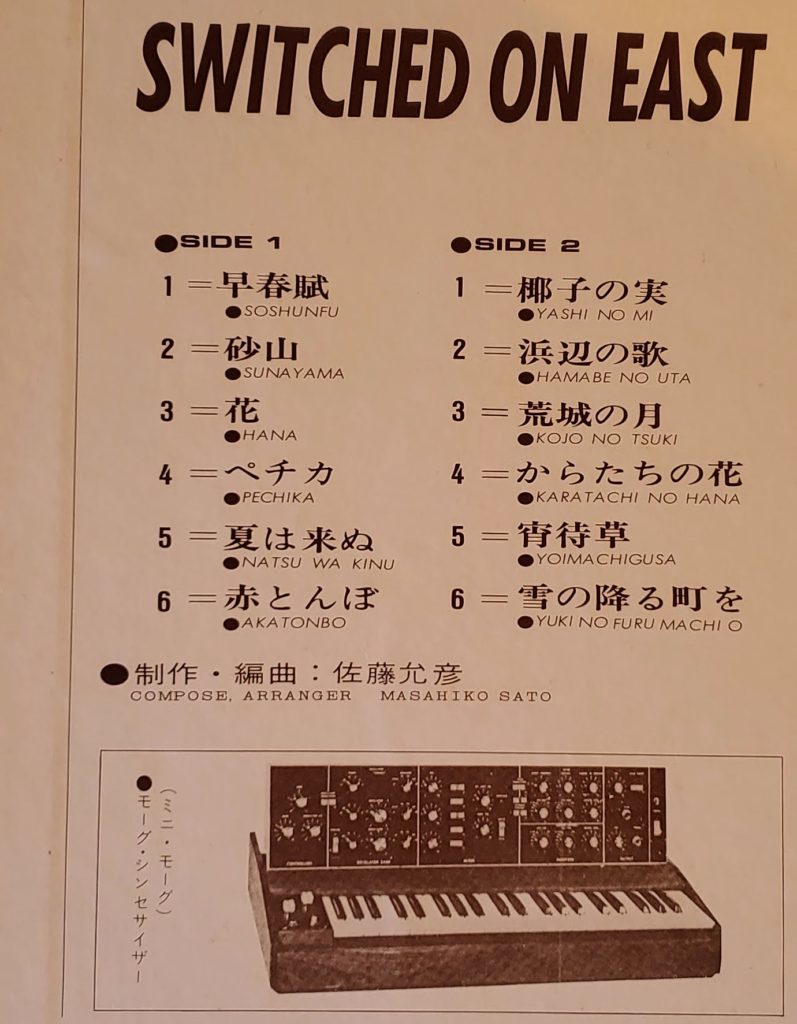
Masahiko Satoh
Switched On East (Complete Album Download)
I have accumulated many (many many) Japanese synthesizer albums from the 1970s over the past few years. Finding out anything about any of these releases in English is often impossible. Many times I have to enter these items into Discogs myself. Which is a real pain in the ass when the majority of the liner notes are in kanji. Thankfully, this one was already there.
Switched-On East is the earliest example of a Japanese electronic/synthesizer album that I’ve come across. It was released by Denon Records in 1971. To the best of my knowledge, it never received a release in any other country, which makes sense. The album is comprised of nothing but covers of songs by Japanese composers. I’m going to guess that the international market for something like that was pretty slim at the time.
The album was arranged and performed on synthesizer by Masahiko Satoh, who for some reason chose to work under the name M Sato for this release. Satoh is a very prolific composer and jazz pianist in Japan, with dozens of albums to his name ranging from experimental electronic pieces like this, to more traditional jazz recordings. He gets around, I’ve ended up owning six albums that feature him, despite the fact that I’m not really into jazz. He shows up where you least expect him.
He’s the Spanish Inquisition of Japanese jazz pianists.
While Satoh is a brilliant composer and fantastic pianist, I don’t think that he really knew his way around a synthesizer in 1971. Or if he did, he wasn’t fully aware of how to properly take advantage of it in a studio environment. This is a very good record, but, like many similar albums that would be released in the 1970s, his interpretations of these tracks are a little bare bones when compared to the stuff that Wendy Carlos was doing at the same time. Carlos would put forth the effort to really layer her arrangements to make them sound as big and complex as possible. But that took a lot of time (and skill). Early synths were entirely monophonic. Anytime you hear layering or chorus effects, that means that the performer had to go back, record those parts separately, and edit them in later. In the days before digital editing software, that meant a lot of tape. It was probably a real pain in the ass. Carlos should be commended for her patience just as much as her technical ability.

I’m not familiar with most of these tunes outside of this album. I don’t know if Satoh took any major liberties with the source material or if they’re just 100% accurate arrangements that happened to be performed on a synthesizer. Regardless, I enjoy listening to them. They’re sparse, that’s for sure, but that gives many of them an almost ethereal quality. “Sunayama” is downright haunting. Others, like “Yashi No Mi” are bouncy and fun, and their minimal nature give them a video game music vibe, some 10 years before that was even a thing.
This album was never released on CD or digitally (as far as I can tell) and I don’t think that the record was pressed more than once. And from what I can gather, most of the ones that were pressed don’t sound good. Every auction I’ve come across for this record by someone who has actually listened to it seems to echo the same sentiment: “It looks perfect, but sounds a bit scratchy.”
I can certainly attest to that. Despite the fact that my copy looks flawless, and despite the fact that I’ve given it multiple cleanings, parts of it still sound a little scratchy. Since I’m a self-hating perfectionist, I usually don’t share my rips unless they’re near-perfect, but considering the rarity of this record I made an exception.
As I said before, I have a lot of records like this (seriously, it’s a problem). So expect more like them in the future. I hope to get some more complex write-ups done on some of the more interesting ones during my holiday break.
And if you like this, be sure to check out this post from a few months back, where I share something similar by Hideki Matsutake, a synth legend.
